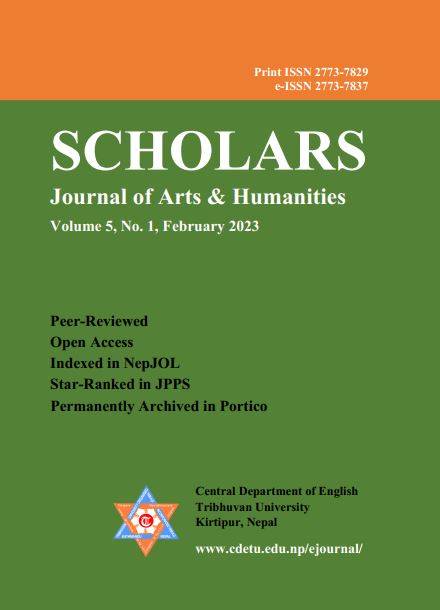Theatre as Social Critique in Select Nineteenth-Century Indian Plays
DOI:
https://doi.org/10.3126/sjah.v5i1.52480Keywords:
Theatre, performance, social critique, nineteenth century Indian plays, comedyAbstract
As an imitation of actions, theatre is representational. Different aspects of performative arts like theatre are a reflection of the contemporary age in which they are written and performed. Theatre in Calcutta, India, in the nineteenth century started being influenced by the colonial and European models. The changes brought in by colonial modernity are major tropes in many of the plays of that time. Colonial modernity brought English education, western liberal ideas and new lifestyle, which attracted the youth and made them criticize the old and traditional ways. Krishnamohan Bandyopadhyay’s (also spelt as Krishna Mohana Banerjea) The Persecuted and Michael Madhusudan Dutt’s Ekei Ki Bole Sabbhyata? [Is This Called Civilization?] are two plays that represent the so-called colonial modernity and show how changes were taking place in the society in the colonial period in Bengal. The characters from two generations, the older following the traditional ways and the younger ones following Englishness, depict a confrontation of two civilizations. Ideologies, worldviews and new habits are formed among the youths, which are despised by the elders. The plays, thus, question the modern ways, that, if they really mean a civilization. This article attempts to show how the plays can be read as social critique at par with comedy of humours and comedy of manners.
Downloads
Downloads
Published
How to Cite
Issue
Section
License

This work is licensed under a Creative Commons Attribution 4.0 International License.
© Central Department of English, Tribhuvan University and Authors




